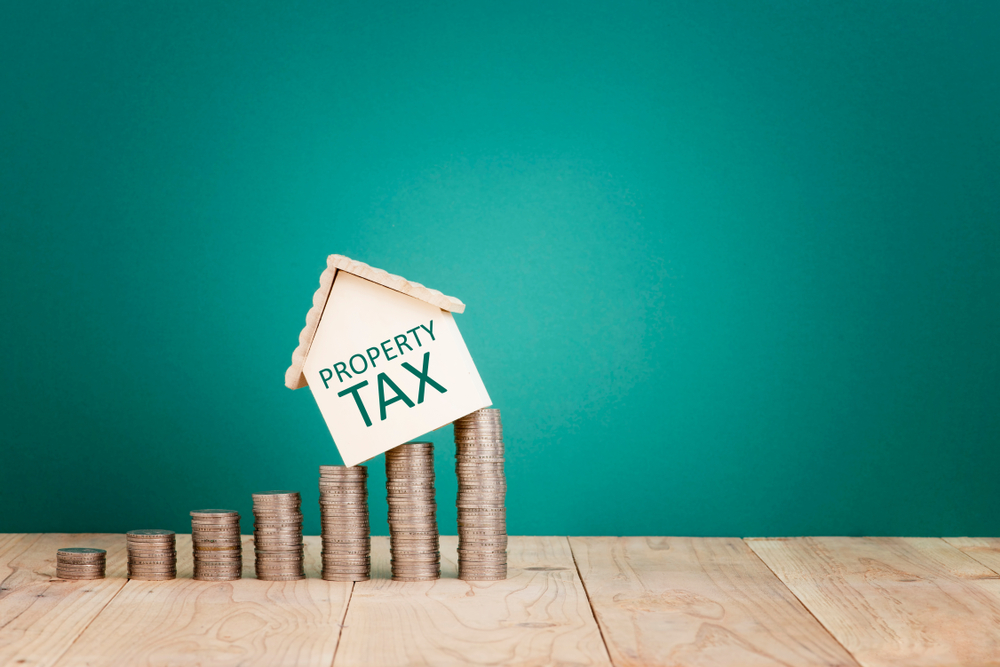Taxes are a hot topic in Indiana right now as inflation relief bills are passed and checks are handed out. Although there are ways to get some extra cash back right now with these new bills, there is also important information being passed around about property taxes and mortgage payments too.
Most state and local property taxes are deductible on your federal tax return. However, property taxes can also be a significant hit to your take-home income as well.
This post will go over some ways you can lower your property taxes and mortgage payments at the same time. Read on to learn more!
Explaining Property Taxes
Local governments charge property taxes on real estate. Homeowners and businesses usually pay property tax bills twice a year, and tax deadlines and tax percentages depend on where a home is located.
Property taxes are one of the largest sources of revenue for local governments. The taxes collected are used for expenses in the county, city, town, or school district. These expenses includes schools, infrastructure, emergency services, etc.
Each area has a local appraiser who evaluates the value of each property and decides if it’s fair market value. A fair market value represents a certain number that someone would pay for the property. The fair market value is then usually multiplied by a local assessment rate to find out the assessed value and how much a property owner would owe in taxes.
A lot of property owners pay their property taxes through an escrow account that their mortgage company has for them. The homeowner then pays into the escrow account sometime each month. The tax bills are later sent to the mortgage company, and this pays the bill. The higher your property taxes, the higher your mortgage payment is at the end of each month.

Why You Should Reassess Your Property Assessment
The fair market value of your home is important for a bunch of reasons.
First, it helps determine the assessed value, and this number is used to calculate your property taxes. It also helps you figure out how much you could make on your house if you decide to sell it.
In this case, you want your fair market value and assessed value to be as high as they can. The fair market value is usually the listing price that your home will be if you decide to sell it. If you’re staying in your home, you want your property to appraise for less so your property tax bill will be lower.
Home prices are rising due to inflation, and this can mean there might be a chance that your property taxes could increase too. However, multiple reports suggest that around 30-60% of taxable property in the US is over-assessed. This means that people are paying more than they need to on their taxes.
If you think you’re paying too much for your property taxes, it might be a good time to dispute them. When you lower your property value, then you have a good chance of lowering your property taxes and mortgage payments.
How to Dispute Your Property Taxes
It may seem overwhelming to dispute your property taxes, but it’s actually a very straightforward process. Follow these steps in order to dispute your property taxes.
- Create or collect detailed records: When you have detailed records, you have a better chance at winning your dispute. Look back at previous property assessments and the reasons they came up with the amount they did. Make sure that the assessment office gave you all of the correct information on the previous assessments like square footage, number of bedrooms and bathrooms, etc. If an assessment was done incorrectly, then it should be really easy to appeal.
- Contact your local assessor: This usually means calling your local appraiser’s office and requesting a meeting. During the meeting, you will talk about discrepancies within the information you’ve found about your property.
- Find comparable properties: If the meeting is unsuccessful, compare similar properties to determine their value. You can get the help of real estate agents for this step. If you find that comparable properties are valued at less than yours, you can decide to file an appeal to dispute your property taxes.
- Make an appointment to appeal: Start by filling out an appeals application. This can be found on your county tax website. Pay any application fees and start preparing for your appeal.
It’s not a bad idea to hire an attorney or tax professional to represent you during the appeal process. If you don’t want one, you can still represent yourself. If you are prepared for your case, then you’ll have a solid shot at lowering your property taxes.
Make sure you gather the following types of information:
- Selling prices for recently sold comparable homes
- Photos of your property and estimates for repairs/upgrades
- Records of past property assessments
Don’t forget that you’re trying to convince your county board that your home should be valued at less than what they’ve originally assessed. You have the proof, so show them why their assessment was too high.
There is a certainty to taxes, and it can make you feel like there is nothing you can do to change your payments. However, as this blog shows, you can appeal for lower payments. If you have a case to lower your payments, you have a solid path for change and a good chance of winning your appeal.









